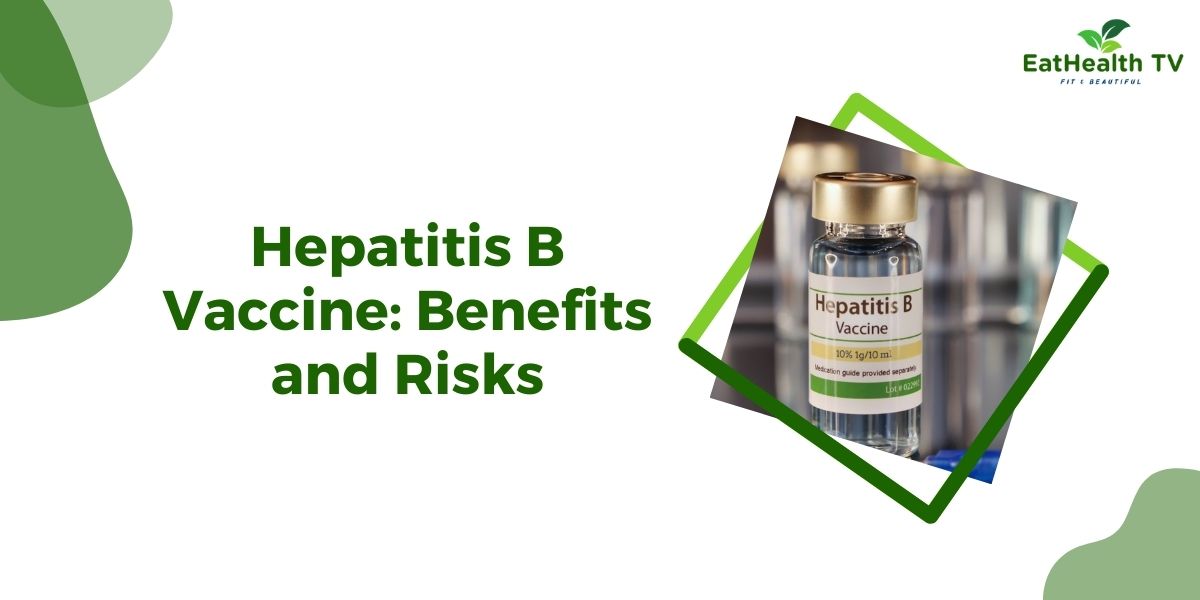Hepatitis B Vaccine: Benefits and Risks
Uncover the Lifesaving Power: Benefits and Risks of the Hepatitis B Vaccine

Hepatitis B Vaccine: Benefits and Risks
Hepatitis B is a serious infection caused by the Hepatitis B virus (HBV) that affects the liver. This infection can lead to chronic liver disease, liver cancer, and even death. Fortunately, the Hepatitis B vaccine provides effective protection against this potentially life-threatening disease. In this article, we will explore the benefits and risks associated with the Hepatitis B vaccine, providing a comprehensive understanding for both 12th-grade students and experts.
What is Hepatitis B?
Hepatitis B is a viral infection that attacks the liver and can cause both acute and chronic disease. It is transmitted through contact with infectious body fluids, such as blood, semen, and vaginal secretions. Common modes of transmission include:
- Mother to child during childbirth
- Unprotected sexual contact
- Sharing of needles or syringes
- Accidental needle sticks or other sharp instrument injuries in healthcare settings
The Hepatitis B Vaccine
The Hepatitis B vaccine is a recombinant vaccine, meaning it is made using DNA technology. It contains a small part of the Hepatitis B virus, which triggers the immune system to produce antibodies without causing the disease. The vaccine is usually given as a series of three or four shots over six months.
Types of Hepatitis B Vaccines
There are several types of Hepatitis B vaccines available:
- Single-antigen vaccines: These contain only the Hepatitis B surface antigen and are used primarily for infants, children, and adults.
- Combination vaccines: These vaccines combine the Hepatitis B vaccine with other vaccines, such as DTaP (diphtheria, tetanus, and pertussis) and IPV (inactivated poliovirus vaccine), to reduce the number of injections required.
Benefits of the Hepatitis B Vaccine
1. Effective Protection
The primary benefit of the Hepatitis B vaccine is its effectiveness in preventing infection. Studies have shown that the vaccine is more than 95% effective in preventing Hepatitis B infection and its chronic consequences when the full vaccination series is completed. Just as we know DTaP Vaccine: Benefits and Risks?
2. Reduction in Liver Disease and Cancer
By preventing Hepatitis B infection, the vaccine significantly reduces the risk of chronic liver disease and liver cancer. Chronic Hepatitis B infection is a leading cause of liver cirrhosis and hepatocellular carcinoma (a type of liver cancer). Vaccination helps protect individuals from these severe health outcomes.
3. Prevention of Mother-to-Child Transmission
Administering the Hepatitis B vaccine to pregnant women and newborns is highly effective in preventing mother-to-child transmission of the virus. This practice has been shown to reduce the incidence of Hepatitis B in infants born to infected mothers by 90%.
4. Public Health Impact
Widespread Hepatitis B vaccination has led to a substantial decrease in the prevalence of the virus worldwide. Countries with high vaccination coverage have seen dramatic reductions in the incidence of Hepatitis B-related diseases. This public health success translates to fewer cases of liver disease, reduced healthcare costs, and improved quality of life for millions of people.
5. Long-term Immunity
The Hepatitis B vaccine provides long-term immunity. Studies have demonstrated that immunity lasts for at least 20 years, and likely for a lifetime, for most vaccinated individuals. This long-term protection is crucial in maintaining low rates of infection and disease.
Risks and Side Effects of the Hepatitis B Vaccine
1. Common Side Effects
The Hepatitis B vaccine is generally safe and well-tolerated. Most side effects are mild and temporary, including:
- Pain at the injection site: This is the most common side effect and usually resolves within a few days.
- Fever: A mild fever may occur after vaccination.
- Fatigue and headache: Some individuals may experience tiredness or a headache for a short period following the shot.
2. Rare Side Effects
Serious side effects are rare but can occur. These include:
- Severe allergic reactions (anaphylaxis): This is extremely rare, occurring in about 1 in 1.1 million doses. Symptoms include difficulty breathing, hives, and swelling of the face and throat.
- Neurological reactions: Very rarely, vaccines can be associated with neurological reactions such as Guillain-Barré syndrome, although a causal link has not been conclusively established.
3. Contraindications
The Hepatitis B vaccine is contraindicated in individuals with a known allergy to any component of the vaccine. People who have had a severe allergic reaction to a previous dose should not receive further doses.
Addressing Common Concerns
1. Vaccine Safety
Despite the benefits, some individuals may have concerns about vaccine safety. It is important to emphasize that the Hepatitis B vaccine has undergone rigorous testing in clinical trials and has a strong safety record. The benefits of vaccination far outweigh the risks of potential side effects.
2. Vaccine Hesitancy
Vaccine hesitancy can be a barrier to achieving high vaccination coverage. Addressing common misconceptions and providing clear, evidence-based information can help alleviate fears and encourage vaccine acceptance. Healthcare providers play a crucial role in educating patients and promoting the benefits of vaccination.
3. Herd Immunity
Herd immunity occurs when a large portion of the population becomes immune to a disease, thereby providing indirect protection to those who are not immune. High vaccination rates are essential for achieving herd immunity against Hepatitis B, reducing the overall spread of the virus and protecting vulnerable populations.
Recommendations for Hepatitis B Vaccination
1. Infants and Children
The Centers for Disease Control and Prevention (CDC) recommends that all infants receive the first dose of the Hepatitis B vaccine within 24 hours of birth, followed by two or three additional doses over the next six months. This early start is crucial in preventing mother-to-child transmission and providing long-term protection.
2. Adolescents and Adults
Unvaccinated adolescents and adults at increased risk of Hepatitis B infection should receive the vaccine. This includes individuals with multiple sexual partners, healthcare workers, people with chronic liver disease, and those who inject drugs. Additionally, international travelers to regions with high Hepatitis B prevalence should be vaccinated.
3. Special Populations
Certain populations, such as individuals with HIV, patients undergoing hemodialysis, and people with chronic liver disease, are at higher risk of severe Hepatitis B infection and should be prioritized for vaccination.
Conclusion
The Hepatitis B vaccine is a powerful tool in the fight against Hepatitis B infection and its associated complications. Its benefits far outweigh the risks, offering effective protection against a potentially life-threatening disease. By understanding the importance of vaccination and addressing common concerns, we can promote higher vaccination rates and achieve better public health outcomes. Whether you are a 12th-grade student learning about vaccines or an expert in the field, the message is clear: the Hepatitis B vaccine is a safe, effective, and essential part of our efforts to protect health and prevent disease.
Call to Action
If you or your loved ones are not yet vaccinated against Hepatitis B, consider talking to your healthcare provider about the benefits and scheduling your vaccination. By taking this proactive step, you contribute to the health and well-being of yourself and your community.




